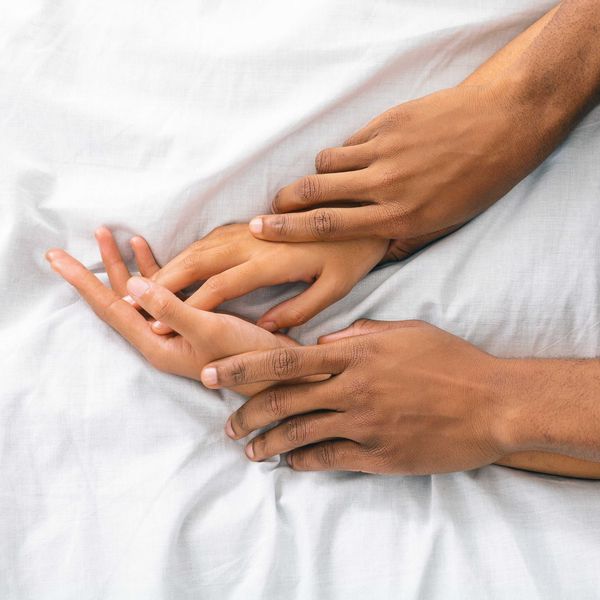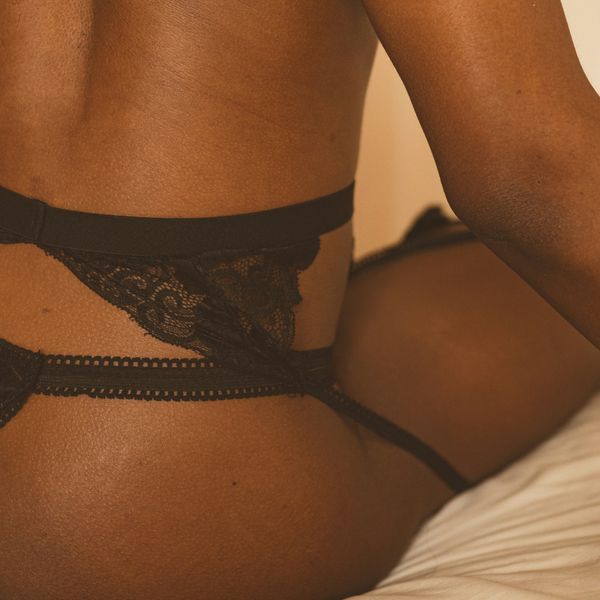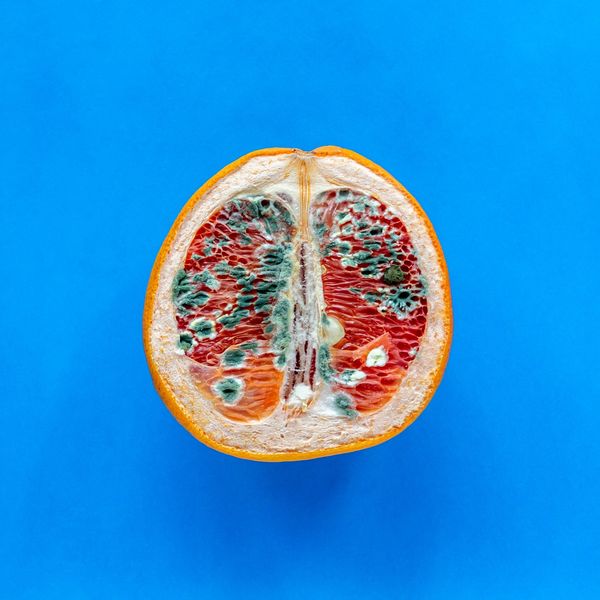Yoni care should be a part of every woman's self-care regimen. Yes, your vagina is self-cleaning but just like any other part of your body, there is regular maintenance that needs to be a priority. There is an entire market out there dedicated to vaginal health with products ranging from organic pads, cleansers, vaginal steams, yoni eggs, and countless other tools to help keep your yoni in healthy condition. Some of us tend to live toxic lifestyles in our everyday routines, such as not having healthy diets, and this can contribute to heavier cycles, cramps, or PMS symptoms. Let's face it, there is a lot going on down there, a daily routine can help in even the smallest of ways. Women have a monthly detox period, but it has to be maintained.
One product that has some benefits and is easy to add to your yoni regimen is the Pangaea Pearls™ from Embrace Pangaea. Over the last few years, vaginal steams have become popular in the American market as a way to detox your womb. However, yoni pearls have the same benefits as vaginal steam but come in a much more compact package. The founder of Embrace Pangaea, T.C. Atkinson had her own journey trying to maintain balance in her own self-care regimen, "I've always been one to solve my own problems. Solving my own problems was the key. In 2012, in a past relationship, my then partner's sperm caused an imbalance in my vagina. I experienced bouts with BV, and my pH being off. I'm Jamaican and I wanted natural, herbal options. I researched and found yoni pearls and decided to use them for myself. After my great results and seeing that they worked, I wanted to share with others." Here is what you should know if you are going to give these pearls a try.
Disclaimer: This article intends to relay information, not prescribe you with a solution to your vaginal care. As with anything, please consult with your doctor physcian before using this product.
What Are Yoni Detox Pearls & Why You Need To Detox Your Womb
So, what are yoni pearls?
Yoni pearls are basically a holistic organic way to maintain feminine health. It is considered a detox that has claims of improving a variety of conditions, including yeast infections, bacterial infections, infertility, fibroids, heavy/irregular menstruation, vaginal odor, ovarian cyst, vaginal dryness, urine incontinence, genital itching, and expelling fluid build-ups that may cause other unwanted issues. There have been some claims that yoni pearls have improved vaginal tightness and have enhanced sex life after use.
How do yoni pearls work?
The pearls are extremely potent in the sense that they have strong pulling capabilities that allow them to leech out impurities and toxins from your womb. Once the pearls are inserted, the herbs begin to break down the buildup of toxins that are inside that begin causing an unbalanced environment. Specifically, the Pangaea Pearls™:
- Increases blood flow to the vaginal area.
- Provides nutrients that can move from food into the area to revitalize cells.
- Rids the vagina of bad bacteria and fungi.
How do you use yoni pearls?
To use and properly insert the yoni detox pearls is pretty straightforward. Here are the directions:
- Wash your hands before removing the detox from the sealed package.
- Unravel the strings around the pearl and tie a knot to close the pearl and for easy removal.
- Place one pearl in the canal of your vagina and use your finger to push the detox pearl deeply into your vagina.
- Leave the detox in your vagina for only one day.
- Wear a pantyliner and allow the vagina to discharge any toxins for 24-48 hours.
- Wait 24-48 hours before inserting the next yoni pearl.
- Wash your hands before removing the detox.
- Please wait 2-3 days before inserting another detox, and if you are currently experiencing any gynecological disorder, please seek the assistance of a licensed medical practitioner.
How often should a woman use yoni pearls and why?
To be the most effective, yoni pearls should be used periodically. It is suggested that the Pangaea Pearls™ are used in a 6-7 day process. So you definitely need to plan to have enough time for the full detox to process in your body. You want to make sure your diet is aligned, you are drinking water and you are scheduling sex around your detox. It is also necessary that you are not on your cycle when you start the detox for a deeper cleanse.
What does each of the herbs in the yoni pearls contribute to cleansing your womb?
The herbs in the yoni pearls serve as the most important component to help with the cleansing of the womb. Each herb has a specific job that creates the type of healthy environment that your body needs. There are three key 3 herbs in each pearl:
Motherwort - Motherwort plays a key role in rejuvenating the womb by toning, lubricating, and increasing elasticity.
Angelica - Angelica is key in regulating menstruation, balancing estrogen levels, and improving fertility.
Borneol - Borneol plays a key role in reducing pain, controlling hot flashes, tightening the vagina, and reducing uterine discharges.
How do you know if you need to use yoni pearls?
Yoni pearls are not an everyday product but more of a maintenance tool that should be used periodically. The pearls also are a holistic tool used for womb cleansing. It is very important to have your mental space clear and aligned with your body. If you are experiencing any internal conflicts, it is best to wait to use the pearls. Remember that using holistic healthcare regimens means that you are making a lifestyle decision and not a fly by night fix.
According to Atkinson, "Women fall into two groups who normally use Pangaea Pearls™. They are either women who experience imbalance, PCOS, BV, yeasts, or vaginal dryness. The other group is women who just need a detox to clean their womb."
Under what conditions should you NOT use yoni pearls?
Here are a few considerations you should know before using yoni pearls. Depending on what your health status is when you decide to use the pearls, there are a few conditions under which you should not use yoni pearls:
- If you are on your cycle, do not use the pearls because they are not designed to absorb menstrual blood.
- If you and your partner have consistent sex, it is best to communicate and schedule sex around your womb detox.
- If you are someone who hasn't had your hymen broken - it's an insert - it is not recommend to break your hymen because of a detox.
- If you are currently pregnant, do not use the detox. The herbs are extremely potent and drawing herbs.
- If you are currently breastfeeding, it is not recommended to use as the pearls can potentially reduce breastmilk flow.
Detoxing your womb offers many benefits for your holistic self-care routine. If you are already a fan of vaginal steams, this option might be for you. For more information on the Pangaea Pearls™, check out Embrace Pangaea and their companion products to elevate your yoni care.
Are you a member of our insiders squad? Join us in the xoTribe Members Community today!
Featured image by Shutterstock
- I Detoxed My Uterus - xoNecole: Women's Interest, Love, Wellness ... ›
- Foods That Keep Your Vagina Smelling Right - xoNecole: Women's ... ›
- This SHEeo Healed Her Vagina Holistically & Created A Brand To ... ›
- Women Are Using Yoni Steams To Heal Themselves From ... ›
- Vagina Self-Care Tips, Vaginal Self-Care - xoNecole: Women's Interest, Love, Wellness, Beauty ›
- What Is Yoni Steaming? Guide - xoNecole: Women's Interest, Love, Wellness, Beauty ›
- Itching Vagina After Sex: Normal? Causes? - xoNecole: Women's Interest, Love, Wellness, Beauty ›
- Different Vagina Smells Meaning - xoNecole: Women's Interest, Love, Wellness, Beauty ›
- Vagina Detox Pearls - What Happened When I Tried It Out ›
- Yoni Pearls & Pantyliners... Do You Need Them? | Yoni Detox Pearl ... ›
- Yoni Pearls ›
- Q & A – Asha Natural Yoni Care ›
- V-STEAMING & YONI DETOX PEARL FAQS-HOLISTIC WELLNESS ... ›
- Ask An OB-GYN: Do Vaginal Detox Pearls Really Work? - Essence ›
- Yoni Pearls: Everything You Need to Know About This "Vaginal Detox" ›



























